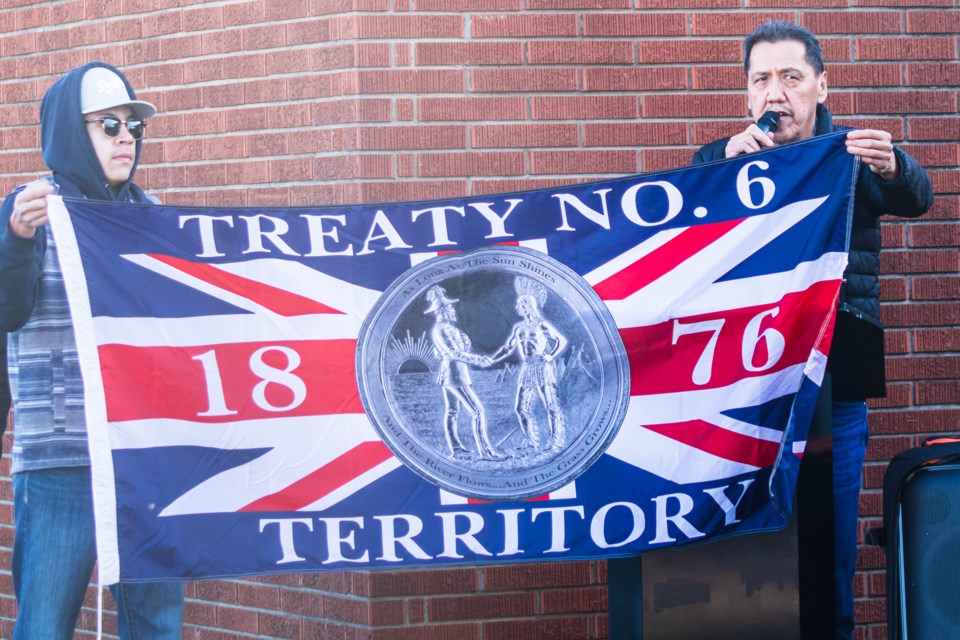ST. PAUL – The Treaty 6 flag was raised for the first time at the Portage College St. Paul campus on Nov. 4.
According to Nancy Broadbent, president of Portage College, this would also be the first time the flag was raised throughout the college’s region as a whole.
The flag raising is part of the college’s commitment to truth and reconciliation, she said.
“We want to really do this to honour the culture and the rights of the Indigenous people who have called this land home for forever.”
Doing so is also an acknowledgement of “our shared history and partnership,” added Broadbent.
Portage College established an Indigenous Advisory Committee in 2017 to guide reconciliation initiatives. The flag raising follows the college's adoption of a land acknowledgment several years ago.
Raising the Treaty Six flag also signifies the college’s long-standing partnerships with members of First Nations in the region, said Broadbent, “and I hope [it] causes people to pause and reflect on their own attempts to reconcile and learn the truth . . . And to build relationships with Indigenous people in our region.”
Elder Sam Cardinal from Saddle Lake Cree Nation was on hand to explain the flag’s significance.
“As the story goes, which was passed down from generation to generation, the Treaties were meant to last ‘As long as the sun shines, the grass grows and the rivers flow.’ So, in essence it means . . . there’s not going to be any end to our Treaties,” said Cardinal.
“We agreed to share the land on that day.”
But, according to the Elder, the government has not been honouring the Treaty. “That’s why we’re always arguing with the government . . . and we’ll continue to do so,” said Cardinal.
Ultimately, First Nations only seek peace, he said. Reconciliation is part of that process, and part of reconciliation means “to understand one another, our cultures, our history,” he said.
Cardinal also spoke to the diversity in the community of St. Paul, which reaffirms the need to “respect one another.”



